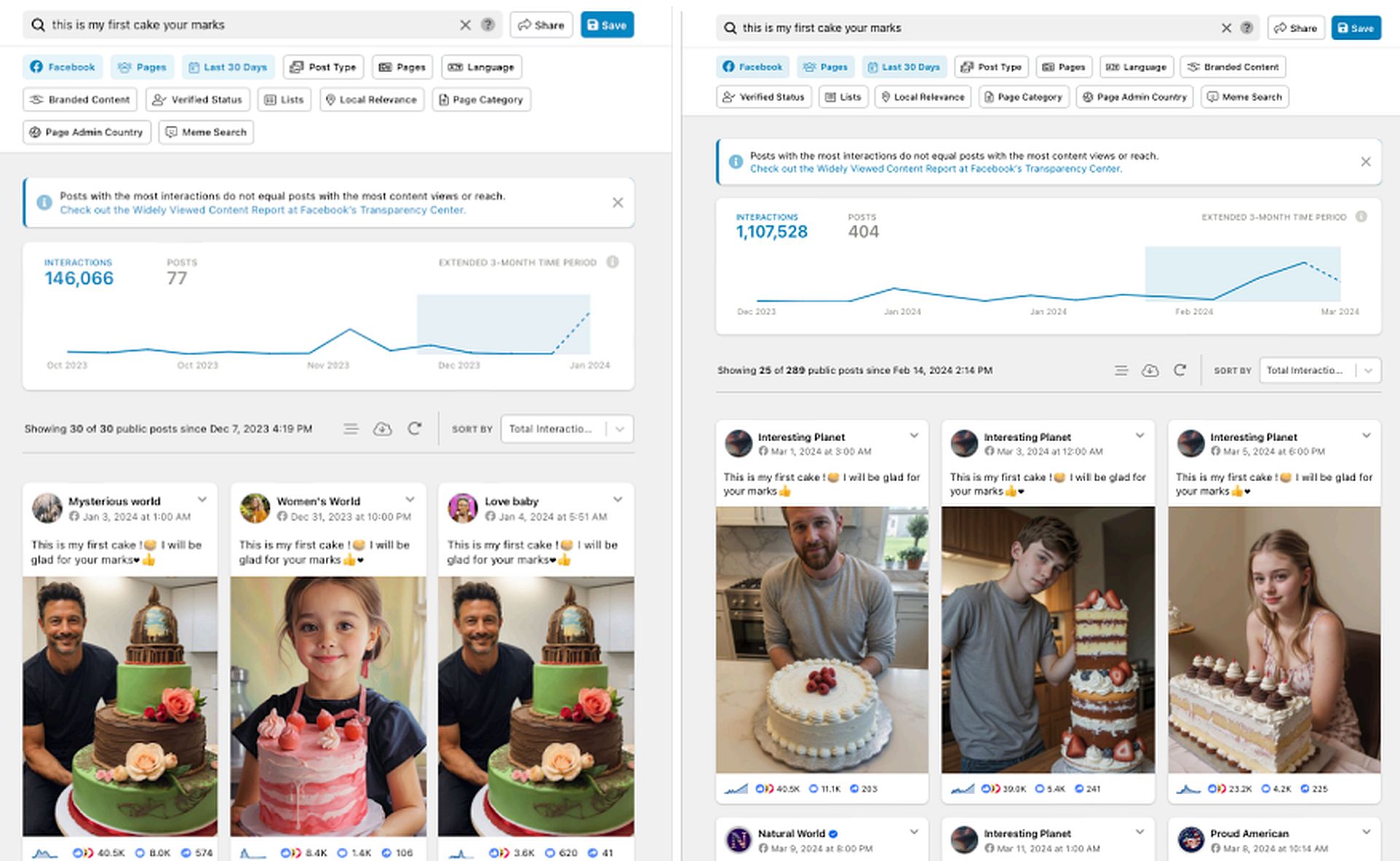In a recent study, researchers from Stanford and Georgetown University took a close look at AI-generated images flooding Facebook. Their findings give us a fresh perspective on what’s happening online.
The study looked at 120 Facebook Pages that posted a lot of AI images. These pages were split into groups like spam, scam, and others. They found that these pages had a lot of followers, with millions of people engaging with their images.

But there’s a darker side to this story. Some pages trick people with fake headlines or try to scam them into giving away personal information. Even Facebook’s recommendation system sometimes pushes these images onto people’s feeds, even if they don’t follow those pages. And interestingly, there are tons of AI Jesus, and they are all connected to the sea somehow. Check out this Shrimp Jesus post and its comments:

What’s more, many people don’t even realize these images are fake. This lack of awareness can lead to more misinformation spreading online. The study also found some pages doing shady stuff like stealing accounts or getting fake followers.
The researchers say we need better rules and oversight to deal with this problem. By working together, we can make sure the internet is a safer and more honest place for everyone.
Staying safe in the age of AI: Tips to navigate potential risks
As the prevalence of AI-generated content continues to rise, it’s essential to stay vigilant and informed to safeguard yourself against potential dangers. Here are some practical tips to help you navigate the digital landscape safely:
- Be doubtful: When you see something strange online, like a too-good-to-be-true story or an odd picture, don’t believe it right away. It might not be real.
- Check the source: Make sure the information you’re reading comes from a trustworthy place. Look for proof from reliable sources or websites that check facts.
- Watch for labels: Some sites now label content made by AI. If you see this label, be careful, especially if you don’t know where it’s from.
- Keep your info safe: Don’t give out personal details online, especially if someone you don’t know is asking for them. Be careful of scams trying to trick you into sharing your info.
- Adjust your privacy: Take a look at your social media settings and change them so only people you trust can see your stuff. This can help stop others from using your info without permission.
- Use security tools: Install good antivirus software on your computer or phone. It helps protect you from bad stuff online, like viruses and scams. Make sure you keep it up to date.
- Learn more: Stay curious about new tech and things happening online. The more you know, the better you can protect yourself.
- Report problems: If you see something online that seems wrong or fishy, tell the people in charge. They can help stop it from spreading and keep others safe.
- Think carefully: Before believing everything you see online, think about it. Does it make sense? Could it be fake? It’s good to be a little skeptical.
- Ask for transparency: It’s important for companies to be clear about how they use AI. Support efforts to make sure they’re honest about it.
Following these simple steps can help you stay safe while surfing the web and avoid falling into traps set by tricky AI-generated content.
Featured image credit: How Spammers and Scammers Leverage AI-Generated Images on Facebook for Audience Growth research





